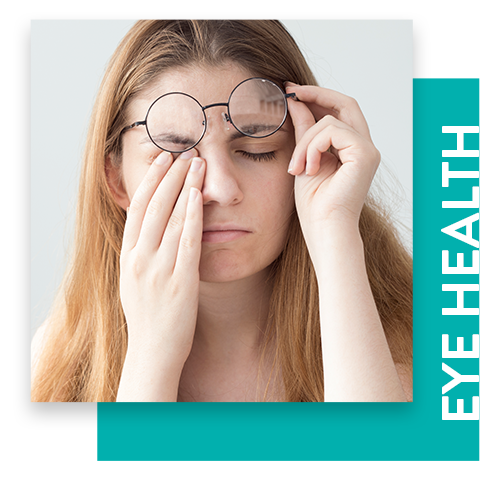Floaters
Find out the risk factors and treatment for floaters
Symptoms and Risk Factors
Floaters are characterized by small, dark shapes that move as you move your eyes. They tend to appear like they are moving away if you try to look at them directly. You are more likely to notice these dark shapes when you look at bright light directly, stare at the sky, or a white piece of paper. Certain factors predispose you to this condition, the chief of which is age. Almost everyone will develop this condition at some point. However, you are at a higher risk of having floaters if:
- You are nearsighted
- You have diabetes
- You have had cataracts surgery

Causes
Floaters are usually attributed to normal changes in the eye as a person ages. The dark shapes that you see are shadows formed on the retina due to strands of vitreous banding together in the eye. This could be as a result of the following:
- An eye infection
- Injury and inflammation (uveitis)
- Eye bleeding
- Vitreous detachment
- Retinal tear or retinal detachment
Trust the Opthamologists at Round Rock Eye Consultants

Exceptional Care

Award-Winning Doctors

Specialized Surgical Procedures

Range of Services
When Are Floaters An Emergency?
Most times, symptoms of floaters are mild and not problematic. However, floaters caused by retinal tear and detachment could be an emergency. If numerous new floaters appear suddenly in your line of vision or there is a dark shadow on the side of the central part of your vision, you should seek treatment immediately.

Personalized Care
Our doctors understand that when it comes to your eyes, one size never fits all. That’s why we offer personalized care for each of our patients. We’ll sit down with you to understand your concerns, needs, and discuss treatment plans. Contact us today to get started.
How Round Rock Eye Doctors Diagnose and Treat Floaters
Floaters are diagnosed during a simple dilated eye exam. To carry out this exam, eye drops will be administered to your eyes to make it easier for doctors to examine them directly. Your Round Rock ophthalmologist may also carry out a physical exam, which involves pressing on the eyelids to detect physical signs of retinal tears. Treatment for this condition depends on what is causing it. Floaters caused by aging or those that do not bother you may not require treatment. A procedure known as vitrectomy may be recommended for more serious cases. Speak to your eye doctor to find out about the risk and potential benefits of this procedure.
